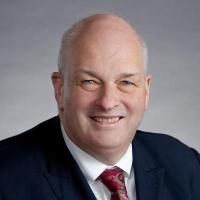Examination of Adult Spinal Deformity Patients Undergoing Surgery with Implanted Spinal Cord Stimulators and Intrathecal Pumps.
Date
2022-02
Journal Title
Journal ISSN
Volume Title
Repository Usage Stats
views
downloads
Citation Stats
Abstract
Study design
Retrospective cohort study of a prospectively collected multi-center database of adult spinal deformity (ASD) patients.Objective
We hypothesized that patients undergoing ASD surgery with and without previous spinal cord stimulators (SCS)/ intrathecal medication pumps (ITP) would exhibit increased complication rates but comparable improvement in health-related quality of life.Summary of background data
ASD patients sometimes seek pain management with SCS or ITP before spinal deformity correction. Few studies have examined outcomes in this patient population.Methods
Patients undergoing ASD surgery and eligible for 2-year follow-up were included. Preoperative radiographs were reviewed for the presence of SCS/ITP. Outcomes included complications, Oswestry Disability Index (ODI), Short Form-36 Mental Component Score, and SRS-22r. Propensity score matching was utilized.Results
In total, of 1034 eligible ASD patients, a propensity score-matched cohort of 60 patients (30 with SCS/ITP, 30 controls) was developed. SCS/ITP were removed intraoperatively in most patients (56.7%, n = 17). The overall complication rate was 80.0% versus 76.7% for SCS/ITP versus control (P > 0.2), with similarly nonsignificant differences for intraoperative and infection complications (all P > 0.2). ODI was significantly higher among patients with SCS/ITP at baseline (59.2 vs. 47.6, P = 0.0057) and at 2-year follow-up (44.4 vs. 27.7, P = 0.0295). The magnitude of improvement, however, did not significantly differ (P = 0.45). Similar results were observed for SRS-22r pain domain. Satisfaction did not differ between groups at either baseline or follow-up (P > 0.2). No significant difference was observed in the proportion of patients with SCS/ITP versus control reaching minimal clinically important difference in ODI (47.6% vs. 60.9%, P = 0.38). Narcotic usage was more common among patients with SCS/ITP at both baseline and follow-up (P < 0.05).Conclusion
ASD patients undergoing surgery with SCS/ITP exhibited worse preoperative and postoperative ODI and SRS-22r pain domain; however, the mean improvement in outcome scores was not significantly different from patients without stimulators or pumps. No significant differences in complications were observed between patients with versus without SCS/ITP.Level of Evidence: 3.Type
Department
Description
Provenance
Citation
Permalink
Published Version (Please cite this version)
Publication Info
Daniels, Alan H, Wesley M Durand, Alyssa J Steinbaum, Renaud Lafage, D Kojo Hamilton, Peter G Passias, Han Jo Kim, Themistocles Protopsaltis, et al. (2022). Examination of Adult Spinal Deformity Patients Undergoing Surgery with Implanted Spinal Cord Stimulators and Intrathecal Pumps. Spine, 47(3). pp. 227–233. 10.1097/brs.0000000000004176 Retrieved from https://hdl.handle.net/10161/28046.
This is constructed from limited available data and may be imprecise. To cite this article, please review & use the official citation provided by the journal.
Collections
Scholars@Duke
Peter Passias

Christopher Ignatius Shaffrey
I have more than 25 years of experience treating patients of all ages with spinal disorders. I have had an interest in the management of spinal disorders since starting my medical education. I performed residencies in both orthopaedic surgery and neurosurgery to gain a comprehensive understanding of the entire range of spinal disorders. My goal has been to find innovative ways to manage the range of spinal conditions, straightforward to complex. I have a focus on managing patients with complex spinal disorders. My patient evaluation and management philosophy is to provide engaged, compassionate care that focuses on providing the simplest and least aggressive treatment option for a particular condition. In many cases, non-operative treatment options exist to improve a patient’s symptoms. I have been actively engaged in clinical research to find the best ways to manage spinal disorders in order to achieve better results with fewer complications.
Unless otherwise indicated, scholarly articles published by Duke faculty members are made available here with a CC-BY-NC (Creative Commons Attribution Non-Commercial) license, as enabled by the Duke Open Access Policy. If you wish to use the materials in ways not already permitted under CC-BY-NC, please consult the copyright owner. Other materials are made available here through the author’s grant of a non-exclusive license to make their work openly accessible.
